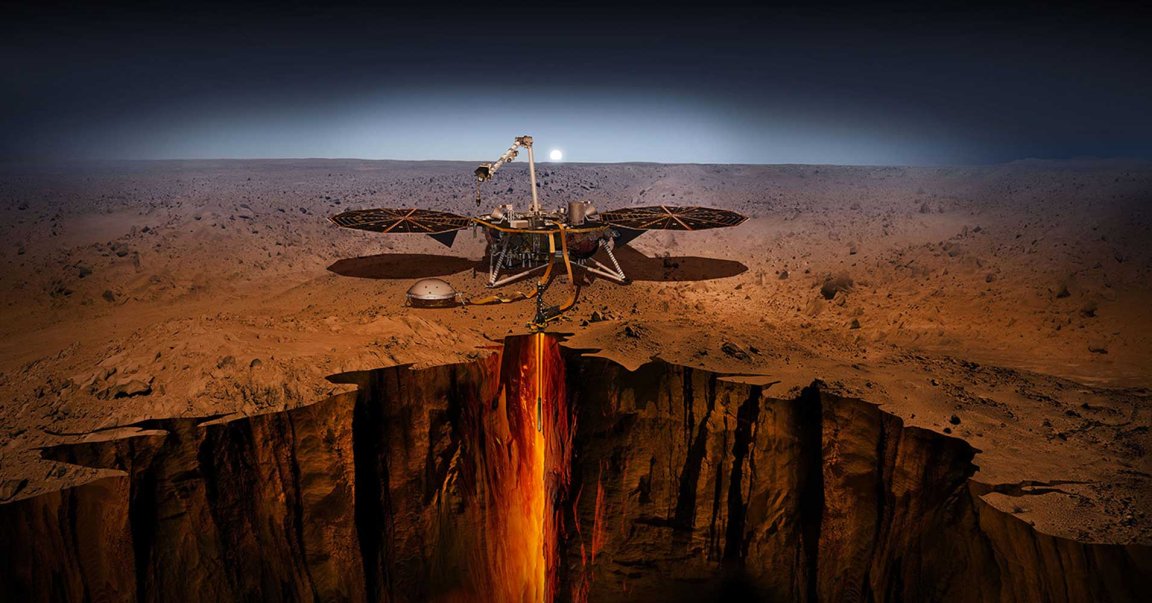
Insightful Observation
NASA has recently observed two strong quakes on Mars — but still aren’t clear on their origins.
The agency’s InSight lander detected the magnitude 3.3 and 3.1 rumblings on March 7 and 18 (respectively) in a region on Mars called Cerberus Fossae, according to a NASA press release. The lander has previously detected two other powerful “Marsquakes” in the same region measuring at magnitude 3.6 and 3.5.
Though InSight has recorded more than 500 quakes, the four detected in Cerberus Fossae offer the clearest signals to observe the interior of the planet.
Earth-Like Quakes
Researchers believe these four quakes indicate that the region is active with seismic activity.
“Over the course of the mission, we’ve seen two different types of marsquakes: one that is more ‘Moon-like’ and the other, more ‘Earth-like,’” said Taichi Kawamura of France’s Institut de Physique du Globe de Paris in the press release. According to NASA, Earth-like quakes have waves that travel through a planet. Moon-like quakes, on the other hand, are scattered.
“Interestingly,” Kawamura said, “all four of these larger quakes, which come from Cerberus Fossae, are ‘Earth-like.’”
Marsquake Weather
Scientists say that the InSight lander benefitted from the right weather conditions on the Martian surface when it detected the quakes. That’s because the seismometer they’re using is sensitive enough that wind and cold weather can affect its detection.
“It’s wonderful to once again observe marsquakes after a long period of recording wind noise,” said John Clinton, the leader for InSight’s Marsquake Service at ETH Zurich said in the press release. “One Martian year on, we are now much faster at characterizing seismic activity on the Red Planet.”
Researchers still don’t know the exact origins of the rumblings since the planet doesn’t have tectonic plates like Earth. Some theories include frozen groundwater creating pressure on the Martian surface much in the same way fracking does.
READ MORE: NASA’s InSight Detects Two Sizable Quakes on Mars [NASA]
More on Marsquakes: NASA’s Insight Mars Lander Just Recorded Its First Ever Marsquake